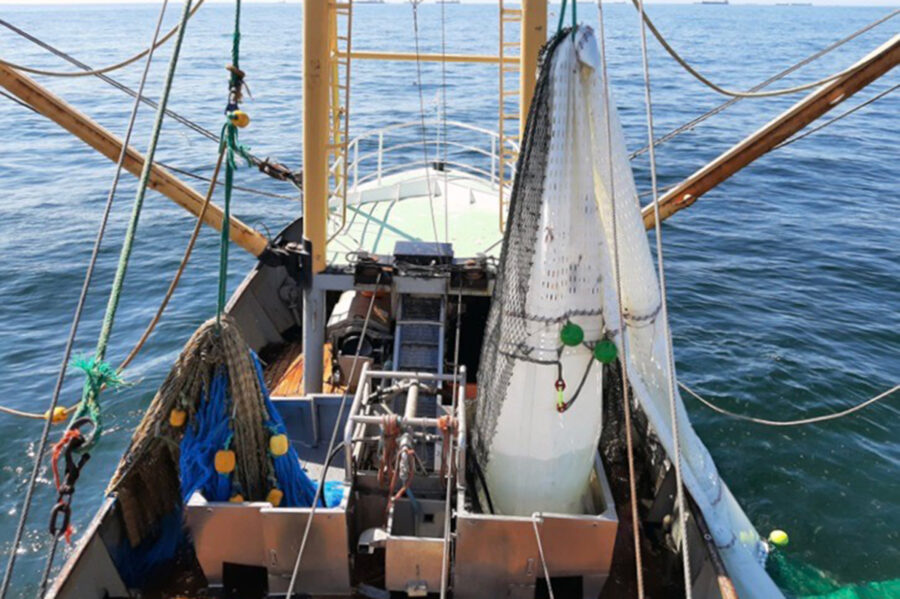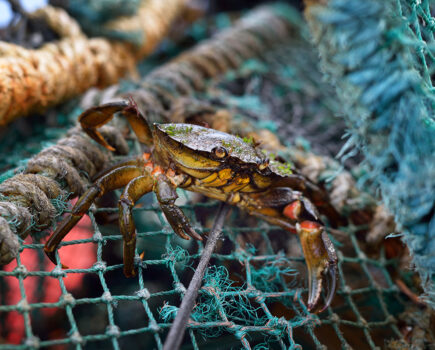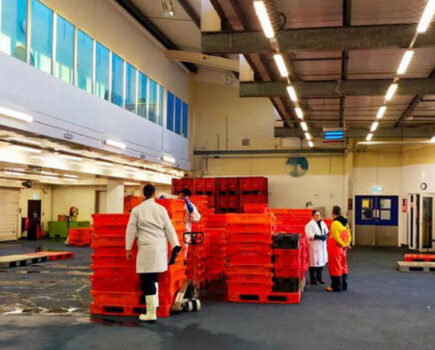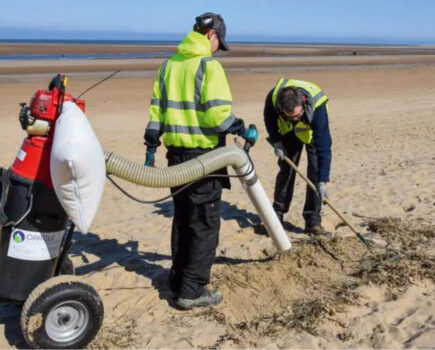A representative from Precision Seafood Harvesting (PSH), a New Zealand company that has developed FloMo, a groundbreaking ‘modular harvesting system’, and is currently working on projects as far apart as Norway, New Zealand and the Netherlands, asked delegates at an international summit in London last week for support in identifying the best way to gain regulatory approval for its system.
Speaking at the prestigious Blue Food Innovation Summit in London – tickets for the two-day summit, which attracted several hundred delegates from all over the world, cost £1,495 plus VAT – he outlined the work to develop the FloMo modular harvesting system.
The FloMo system is now in commercial use in New Zealand, and is being being trialled in Denmark, the Netherlands and the USA, along with plans for trials in the Northern Irish and Scottish Nephrops fisheries in early May.
However, during a ‘Dragon’s Den’ style pitch to investors held at the London event, FloMo’s Dr André Pinkert listed three outcomes the company was hoping for – additional investment capital, support with setting up a finance scheme for fishermen to use the technology around the world, and help with obtaining regulatory approval.
Regulatory approval, he told the summit, was required in every jurisdiction where the company is working, but the path to UK approval was harder to understand.
After his presentation on the new technology, and the positive results fishermen are achieving elsewhere with it, the moderator asked: “You mention a constraint in obtaining regulatory approval intheUK–canyoutellusmore about how this could hinder development of the business here?”
“The codend design is not mesh-based,” delegates were told. “Previous regulations have been about minimum mesh sizes. Now we have come with our FloMo system that doesn’t have a mesh and doesn’t fit any category. We have to work with regulators to get their approval.
“In New Zealand, we have regulatory approval for most species, and are in the process for approval in the scampi fishery, including undertaking trials as part of a Sustainable Food and Fibre Futures Programme, which is being co-funded by the New Zealand government and PSH. There are also areas of the US where we don’t have regulatory barriers to adoption.
“We want to create buy-in from the entire community, working with fishermen in each country, with independent scientists and regulators in each The FloMo system is now in commercial use in New Zealand, and is being being trialled in Denmark, the Netherlands and the USA, along with plans for trials in the Northern Irish and Scottish Nephrops fisheries in early May.
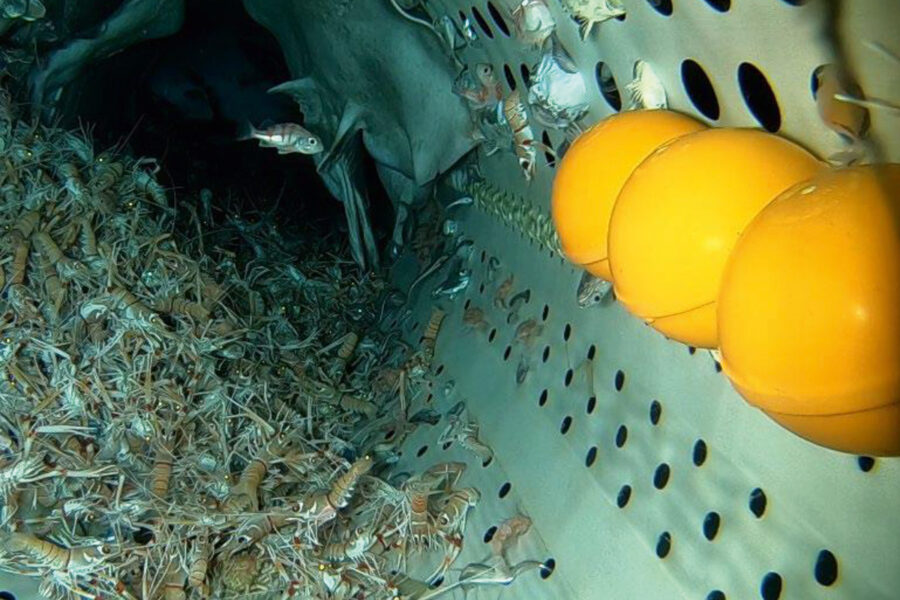
However, during a ‘Dragon’s Den’ style pitch to investors held at the London event, FloMo’s Dr André Pinkert listed three outcomes the company was hoping for – additional investment capital, support with setting up a finance scheme for fishermen to use the technology around the world, and help with obtaining regulatory approval.
Regulatory approval, he told the summit, was required in every jurisdiction where the company is working, but the path to UK approval was harder to understand.
After his presentation on the new technology, and the positive results fishermen are achieving elsewhere with it, the moderator asked: “You mention a constraint in obtaining regulatory approval intheUK–canyoutellusmore about how this could hinder development of the business here?”
“The codend design is not mesh-based,” delegates were told. “Previous regulations have been about minimum mesh sizes. Now we have come with our FloMo system that doesn’t have a mesh and doesn’t fit any category. We have to work with regulators to get their approval.
“In New Zealand, we have regulatory approval for most species, and are in the process for approval in the scampi fishery, including undertaking trials as part of a Sustainable Food and Fibre Futures Programme, which is being co-funded by the New Zealand government and PSH. There are also areas of the US where we don’t have regulatory barriers to adoption.
“We want to create buy-in from the entire community, working with fishermen in each country, with independent scientists and regulators in each market we are working in.” Speaking to FN after the event, André Pinkert said: “We are very hopeful about the positive impact our gear can have in the UK Nephrops fishery. The results we have had in the New Zealand scampi fishery have been very positive in significantly reducing unwanted fish bycatch, and we have seen way better quality in the catches of the scampi as well.
“We have multiple projects ongoing or planned in Europe – this includes Denmark, Norway and several projects in the Netherlands. Our main issue is uncertainty around approval timelines. Certainty would help us massively, as would better understanding of what information UK regulators actually require of us.
“That is why I raised this at the summit – if we can find a way to get the same route to regulatory approval in the UK that was so successful in New Zealand, it is likely that UK
fishermen can be reaping the rewards of these innovations much much faster than is currently the case.”
FN contracted Defra with specific questions raised at the summit, asking for advice as to how the process could be speeded up to the point that gear can be trialled by UK fishermen.
A Defra spokesperson said: “We recognise the challenges the sector has faced over recent years, which is why we are engaging with industry to create more secure, sustainable and economically successful fishing and aquaculture sectors, that will in turn support local communities.”
Wider background advice from Defra suggests that to streamline the regulatory approval process, investors would need to demonstrate how their new technology offers the same or greater environmental protections than current fishing gear.
This story was taken from the latest issue of Fishing News. For more up-to-date and in-depth reports on the UK and Irish commercial fishing sector, subscribe to Fishing News here or buy the latest single issue for just £3.50 here.
Sign up to Fishing News’ FREE e-newsletter here.

